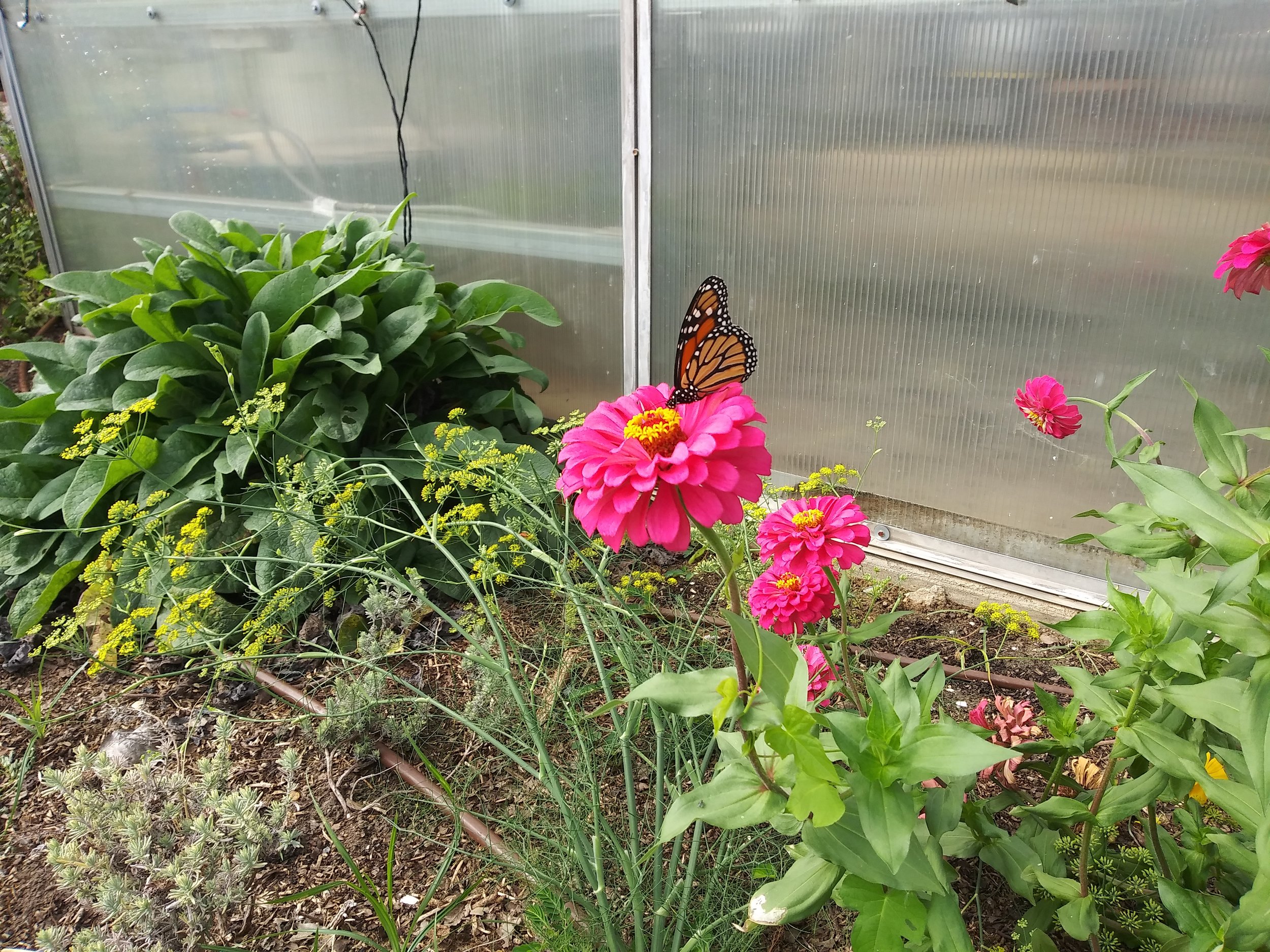IN THIS LESSON
Neighbors, nature, nourishment are themes to our work at E.A.T. South over the years. Our people, our environment, and the nourishment both have given to our spirits and the life of the community are central themes of our work.
People are a part of nature. We need nature. Contact with living soil triggers the production of serotonin in the brain. Yep, sun, fresh air, AND dirt make us feel better. Research shows that children who can see trees from their classrooms and patients who can see them from hospital beds have better educational and health outcomes. Really. Someone did that research. We need nature, and nature needs us to behave better than we have been over the past 150 years.
This section is how we garden with nature, not against it. What we do in our homes and gardens can either support or harm our communities. What we dump on our yards, gardens, driveways and into our landfills ends up in streams, rivers, and our air. Seriously. I’m not going to take up too much more space on the harms caused by chemicals, but I am going to say that we’ve had too many farm friends and staff, struggle with and lose their lives to cancer. We’ve all grown up in a polluted and contaminated world. Let’s create garden programs that make this world better for our kids.
When we invite nature to be a part of our homes, yards, and gardens, not only do we experience the positive effects listed above, we grow better gardens. Flowers bring pollinators and predators that help us grow more food and manage pests. Living soils help plants access more nutrients and make them better able to defend against disease.
Gardening with Nature in Mind
Our great grandparents and their parents all the way back to the dawn of agriculture managed to grow food without synthetic chemicals. Chemical nitrogen and pesticides have only been available to most people since the 1940s. Maybe that seems like ancient history, but it’s very recent when you consider just how long people have been feeding themselves.
There are entire shelves of books written about growing food organically. We learn a lot of things from books, but working on one site for almost ten years has afforded me the privilege of watching and learning from the soil, bugs, birds, plants and weather. We’re just going to give you a few lessons we’ve learned here. We invite you to take time to observe your garden and see what it can teach you.
-
We will include different natural gardening resources throughout this course. If you are interested in the origins of regenerative agriculture, farming and gardening in ways that improve the healthy of the soil, George Washington Carver developed the foundational research for this idea.

Zinnias are easy-to-grow summer flowers that butterflies love. The butterfly in this picture is a monarch.

Swamp sunflowers are plants native to Alabama. Native plants evolved with native wildlife, and these flowers help support beneficial insects that can't eat anything else.

Passion Flower of Maypop. This is a vine with striking purple flowers that is the preferred food of the Gulf Fritilary caterpillar. We plan maypops because they are beautiful and to support this native butterfly.

Seek out local experts. Robin Birdwell (in the hat) is our native plant expert. She grows native plants at Bee-utiful Natives and generously shares her time to teach us and our volunteers about native plants.

Another zinnia and a different butterfly -a swallowtail! Plant zinnia seeds in April. The flowers will attract pollinators, and you can cut them for arrangements. Swallowtail butterfly caterpillars prefer to eat dill and fennel so plant that, too!

An insect hotel provides places for bees and other insects to nest. It is also a fun, hands-on project to help you learn about beneficial insects in the garden.